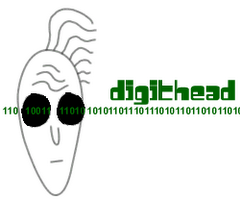When Apple killed Lala, there was a bad guy with motive, opportunity and a smoking gun. In the case of Rdio's recently announced demise, it's different. A postmortem by Casey Newton of the Verge explains Why Rdio died. The team had the design chops, engineering talent and love of music to create a fantastic product but lacked the business and marketing savvy to make it pay off.
Rdio's star feature was certainly design. The site enabled individuals to express themselves and relate to others - for their enthusiasm to feed off one another. You could follow people with intersecting tastes. New listening was suggested algorithmically based on what was "On the rise in your network". You could comment and respond, lovingly curate playlists and follow activity by your musical soul-mates. The social dimension is key to something as personal and tribal as music.
If you wanted to take art pop seriously, do a deep dive into electronic music, exhaustively survey the Zappa catalog, or peruse the archives of 5 years of Sunday Jazz Brunch selections, your people were there. Any platform will play music you already know, Rdio was a place to explore.
In some ways, credit belongs to the users themselves - those who shoehorned rich conversations into a relatively bare-bones comment feature, repurposing shared playlists as the equivalent of discussion forums. In one case, Community Playlist the Trilogy had some 3,522 comments and 116 collaborators.
It had, in a word, community.
Exodus
Refugees looking for a new musical home can find lots of resources on the Rdio lover's slack channel, including a compilation of tools for exporting playlists and other digital assets. A Python script by Jesse Mullan (playlist_helper), which will soon become the official data exporter, worked nicely for me.
There were several calls for a platform-neutral place for the community to live, independent of which streaming service folks end up migrating to. Some nascent possibilities are The Playlist or Hatchet. Last.fm fills that roll for me, at least for now. Maybe the Rdio Lover's slack channel will survive beyond the transition period.
Alternatives
Which service comes the closest to Rdio? Users on the slack channel have compiled a helpful guide Rdio features compared to the competitors. Roughly in order of how interesting they look to me, the main contenders are:
Why?
In A Eulogy for Rdio in the Atlantic, Robinson Meyer calls Rdio "a better streaming service in most every way". So, why did a great service with an intensely loyal following fail?
The economics of digital music are tricky. None of the streaming services are really making money. Rdio's $1.5M in monthly revenue, corresponding to perhaps 150,000 paying users, and $100-150k in advertising couldn't cover their costs of roughly $4M mainly for 140 employees and royalties. This explains the nasty pile-up of $220 million in debt. Music has been called Too free to be expensive. Too expensive to be free.
Pandora is buying Rdio's intellectual property and taking on some of the talent with the intention of introducing their own on-demand streaming service some time in 2016. Interestingly, customer data was not part of that transaction.
One message I hope no one takes away is that community doesn't matter. It's one of the few ways for streaming services to differentiate themselves. Without it, you feel "solitary, lonely and probed" in the characteristic phrasing of CAW a.k.a. The Aquatic Ape
So long
So, we're left with a reminder that the best doesn't always win. No doubt, us "snobby album purists" will find or coopt another platform on which to indulge our musical obsessions. Keep in touch, music peeps: http://www.last.fm/user/cbare.
“To all of you that have expanded my musical experience for the past six or so years - thank you, thank you thank you.”
“Man, I'm gonna miss my playlists.”
“I spent A LOT of time here.”
“Thank you all for introducing me to some truly great music (and some truly terrible, which I enjoyed nearly as much).”
“from the start it has been my most active social network”
“perhaps the kindest community in online music.”
“People left comments on albums, and, lo and behold, the writing was good and interesting.”
“you all have been invaluable in helping me not just discover new music, but in helping me open my mind to new kinds of music.”
“such a welcoming and amazing crew of fellow travelers”
...parting comments from Rdio users collected by fangoguagua.




















 R Bloggers
R Bloggers